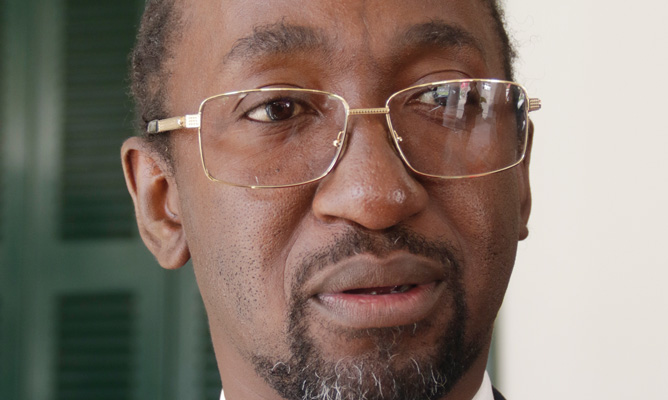
Youth Development, Indigenisation and Economic Empowerment minister Patrick Zhuwao has proposed the introduction of an empowerment levy to support the indigenisation programme, as government officials seem to be competing to offer the most hare-brained ideas.
NewsDay Editorial
Zimbabweans are already overtaxed and overburdened by economic difficulties and a new tax is certainly not what the doctor would order.
The country’s industry is already shrinking and employment at record lows and such a tax will not make things any better. If anything, it is akin to killing the goose that lay the golden eggs.
It seems a template has been set by the government that Indigenisation ministers must be combative and adversarial with foreign companies and we feel the minister is also trying to fit in otherwise there would be no need to even talk about a new tax.
Government’s record with public money is abysmal and a new levy is bound to raise questions on whether it is necessary and whether authorities can be trusted with public money.
One of Zhuwao’s predecessors, Saviour Kasukuwere, cannot account for the community share ownership trust schemes, yet government is proposing a new tax.
What the government is demonstrating is an insatiable hunger for people’s money, which they cannot account for, instead of proposing innovative ways of raising money, while at the same time keeping public confidence.
- Chamisa under fire over US$120K donation
- Mavhunga puts DeMbare into Chibuku quarterfinals
- Pension funds bet on Cabora Bassa oilfields
- Councils defy govt fire tender directive
Keep Reading
Instead of explaining the indigenisation policy properly and its merits, the government has chosen to be confrontational and this raises suspicion, while propping up resistance.
Rather, what Zhuwao should be doing is offering incentives for companies that embrace indigenisation, instead of trying to run to the ground those that seem to resist.
For example, Zhuwao could propose tax breaks for compliant companies or say non-compliant firms should not be allowed to access government tenders, rather than this abrasive approach.
Instead of being seen as a noble empowerment project, indigenisation now looks like a way for government and ruling party cronies to milk money from foreign firms and Zhuwao’s approach seems to justify these suspicions.
Had Zhuwao been well-meaning, he would have started by explaining the state of the community share ownership trust or the youth fund that was set up a few years ago, instead of starting with this tax, which sceptics will view as nothing but a money making scheme.
Despite only having been appointed a few weeks ago, Zhuwao seems hell-bent on ensuring Zimbabwe’s economic slide continues, the clearest indicator that ministers were pulling in different directions, to the country’s detriment.
While his counterpart, Finance minister Patrick Chinamasa has said the country needs foreign direct investment, Zhuwao has rubbished that saying it was unnecessary, despite all evidence showing Zimbabwe is desperate for investment.
Zhuwao has also publicly said he was opposed to civil servants retrenchments to protect Zanu PF apparatchiks posing as public workers and draining State coffers.
We would have thought that his statements are a result of youthful exuberance, but he must be reminded that the state of Zimbabwe’s economy needs mature people and infantile ranting should be dismissed for what it is.
If the government can grow the economy by at least 10% in five years, then maybe Zhuwao’s new tax can be revisited. As it is, introducing it is as unnecessary as it is unhelpful.











